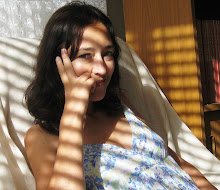
ULURU AT SUNSET. Photo by bobster855
This coming week, from July 6-12, is NAIDOC week. NAIDOC stands for National Aboriginal and Islander Day Observance Committee.
It's a celebration of Aboriginal and Torres Strait Islander cultures and an opportunity to recognise the contributions of Indigenous Australians in various fields.
Ceremonies, seminars, exhibitions, author talks, film screenings and other activities will take place across the nation and all Australians are encouraged to participate.
The theme for NAIDOC Week this year is Honouring Our Elders, Nurturing Our Youth.
When I think of Australia's Indigenous people the cynical, or perhaps the despondent, part of me wonders whether there is all that much to celebrate about the extent and nature of Indigenous participation in our broader society and culture.
Our country has a mixed record when it comes to the way we have interacted with our native peoples, and I would say that most of it is pretty bad.
Reports consistently point to significant, sometimes huge gaps between Indigenous Australians and the rest of the population on most socio-economic measures including health, education, home ownership and rates of incarceration.
Modern Australia has taken on much which is valuable from the cultures of many immigrants over the past 200-odd years. In recent decades, we have enthusiastically embraced elements of culture that has been introduced here from Europe and the Mediterranean, and from Asia.
Lots of kids that I grew up with had parents or grandparents who came from Italy. My dad came by boat from Mauritius and my mum's grandparents came from Wales. My husband's parents came here from India. Our children are growing up with kids whose families hail from all over the world (coincidentally though, mainly from Italy again!). This genuine multiculturalism is a big part of what I love about Australia.
But largely unheard are valuable soundings from the traditional Indigenous ways of life; attitudes around respect for the natural environment, respect for elders, resourcefulness, and a style of life which places pre-eminent importance on community, family, and spirituality.
Many have said, including Pope John Paul II in his historic speech at Alice Springs in 1986, that the key to a coherent and genuine Australian identity lies in the engagement with and acceptance of the ongoing contribution of Indigenous Australians by the broader society.
Here is my list of four events and people who are signs of hope for an integrated Australian identity, one which includes genuine appreciation of our indigenous people, their histories and cultures.
1. Tania MajorTania, an indigenous youth advocate, was named Young Australian of the Year 2007 for her efforts in addressing the issues involved in the welfare of young indigenous people.When she was 22 years old she became the youngest person ever elected to the Aboriginal and Torres Strait Island Commission (ATSIC).She's passionate, driven, and wise beyond her years. She spoke about her advocacy work and her own life story in a TV interview on Enough Rope with Andrew Denton.2. Prime Minister Kevin Rudd's apology to the Stolen GenerationsDoes it matter what the motive was? Whether it was prompted by self-serving politics, a genuine desire for reconciliation, or a mixture of both, many people who needed to hear words of acknowledgement and apology from the country's leader in order to begin to heal, did so. It was a great day for the country.3. Indigenous artists such as Bronwyn Bancroft and Matthew DoyleThey are two of many artists whose work spans traditional Indigenous and contemporary cultures.4. Pope John Paul II's 1986 speech to Indigenous Australians at Alice Springs, which also includes this message:Your culture, which shows the lasting genius and dignity of
your race, must not be allowed to disappear. Do not think that your gifts are worth so little that you should no longer bother to maintain them.Share them with each other and teach them to your children. Your songs, your stories, your paintings, your dances, your languages, must never be lost.



No comments:
Post a Comment